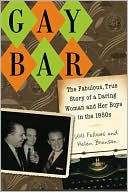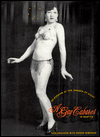Gay Bar: The Fabulous, True Story of a Daring Woman and Her Boys in the 1950s
Search in google:
Vivacious, unconventional, candid, and straight, Helen Branson operated a gay bar in Los Angeles in the 1950s—America’s most anti-gay decade. After years of fending off drunken passes as an entertainer in cocktail bars, this divorced grandmother preferred the wit, variety, and fun she found among homosexual men. Enjoying their companionship and deploring their plight, she gave her gay friends a place to socialize. Though at the time California statutes prohibited homosexuals from gathering in bars, Helen’s place was relaxed, suave, and remarkably safe from police raids and other anti-homosexual hazards. In 1957, she published her extraordinary memoir Gay Bar, the first book by a heterosexual to depict the lives of homosexuals with admiration, respect, and love. In this new edition of Gay Bar, Will Fellows interweaves Branson’s chapters with historical perspective provided through his own insightful commentary and excerpts gleaned from letters and essays appearing in gay publications of the period. Also included is the original introduction to the book by maverick 1950s psychiatrist Blanche Baker. The eclectic selection of voices gives the flavor of American life in that extraordinary age of anxiety, revealing how gay men saw themselves and their circumstances, and how others perceived them. Publishers Weekly From a 21st-century perspective, 1950s bar owner Branson wasn't particularly progressive. The 60-something matron barred "the obvious homosexual" from her modest tavern, strongly preferred patrons who could pass for straight, and didn't allow sexual touching. But the onetime palm reader's spunky memoir about running a gay bar on a crime-prone stretch of L.A.'s Melrose Avenue, first published in 1957, is filled with warm affection for "my boys" and with an uncommon understanding of (and sympathy for) gays, at a time when California law prohibited "inverts" from gathering in bars, and vice squad entrapment of "deviates" was commonplace. By pairing this new edition of Branson's insightful memoir with a study of 1950s America, Fellows (A Passion to Preserve) clarifies how ahead of her time Branson was: she believed, for example, that being gay was about more than sex and that gay men living together could consider themselves married. This stimulating account of support for gay rights pre-Stonewall is an eye-opener. (Oct.)

